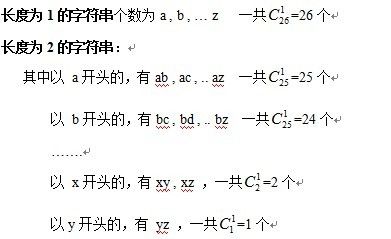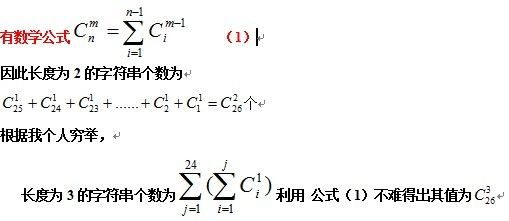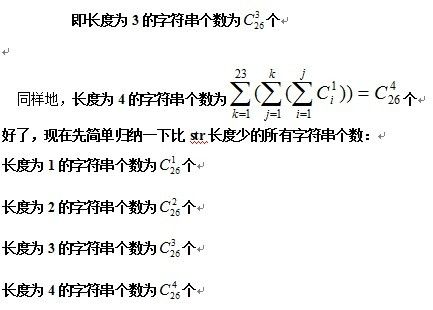- 探索高效驱动之道:STM32 FOC库2.0全面解析与应用指南
嵇李美Rosalie
探索高效驱动之道:STM32FOC库2.0全面解析与应用指南【下载地址】STM32FOC库2.0资源下载STM32FOC库2.0资源下载项目地址:https://gitcode.com/open-source-toolkit/3a775在追求电机控制极致精度与效率的时代,【STM32FOC库2.0】如同一股清流,为开发者们提供了强大的工具。本文旨在深入挖掘这一宝藏开源项目的内涵,引领您走进无刷直流
- Win7 64 位 Vcode Python安装与环境配置
qq_40094167
机器学习python数据挖掘
一、对于win764位的Python版本,官网目前是Python3.8.10。千万不要装错哈哈二、Vcode版本,可以直接在官网或者360软件管家安装,都比较方便。但安装之前请先安装Python,然后安装Vcode。三、Vcode插件配置,本人插件配置多数是根据之前liunx系统配置的,里面许多关键字颜色和大小个人比较喜欢。@1codeRunner即代码运行@2RainbowBrackets彩虹花
- LeetCode 2610. 转换二维数组
迪小莫学AI
每日算法leetcode算法数据结构
LeetCode2610.转换二维数组题目描述给定一个整数数组nums,请你创建一个满足以下条件的二维数组:二维数组应该只包含数组nums中的元素。二维数组中的每一行都包含不同的整数。二维数组的行数应尽可能少。返回结果数组。如果存在多种答案,则返回其中任何一种。注意:二维数组的每一行上可以存在不同数量的元素。示例示例1:输入:nums=[1,3,4,1,2,3,1]输出:[[1,3,4,2],[1
- 算法-合并区间
程序员南飞
算法数据结构职场和发展java动态规划
力扣题目:56.合并区间-力扣(LeetCode)题目描述:以数组intervals表示若干个区间的集合,其中单个区间为intervals[i]=[starti,endi]。请你合并所有重叠的区间,并返回一个不重叠的区间数组,该数组需恰好覆盖输入中的所有区间。示例1:输入:intervals=[[1,3],[2,6],[8,10],[15,18]]输出:[[1,6],[8,10],[15,18]]
- 算法通关----除自己自身以外数组乘积
fang4084
算法通关算法
题目来源:leetcode--238题目内容:给你一个整数数组nums,返回数组answer,其中answer[i]等于nums中除nums[i]之外其余各元素的乘积。题目数据保证数组nums之中任意元素的全部前缀元素和后缀的乘积都在32位整数范围内。请不要使用除法,且在O(n)时间复杂度内完成此题。示例1:输入:nums=[1,2,3,4]输出:[24,12,8,6]示例2:输入:nums=[-
- python-leetcode-除自身以外数组的乘积
Joyner2018
pythonleetcode算法职场和发展
238.除自身以外数组的乘积-力扣(LeetCode)classSolution:defproductExceptSelf(self,nums:List[int])->List[int]:n=len(nums)#初始化结果数组answer=[1]*n#计算前缀乘积prefix=1foriinrange(n):answer[i]=prefixprefix*=nums[i]#计算后缀乘积,同时更新结果
- Codeforces Round 995 (Div. 3)
polarours
Codeforces算法c++数据结构
A.PreparingfortheOlympiad题目描述Monocarp和Stereocarp正在准备奥林匹克。现在仅剩nnn天奥林匹克就要开始了。在这第iii天,如果Monocarp准备训练,那么他将完成aia_iai题,同样的,如果Stereocarp也在这天准备训练,那么他将完成bib_ibi题。Monocarp可以在任意一天进行训练,然而,Stereocarp在观察他,并且学习他的计划:
- CAS单点登录-微信企业号单点登录(二十)
悟空_
cas微信企业号单点登录sso
CAS单点登录-微信企业号登录(二十)背景在企业号得开发中,无法避免登录的问题,多个系统前端交互可能会设计到单点登录,若多系统已单点登录,那sso如何支持呢?概述查看企业号开发者接口文档我们看完文档后总结如下:1.企业号接口采用密码认证获取access_token2.企业号认证后通过code以及access_token获取用户信息,并不是两个标准的oauth2认证,也不是通过双方的access_t
- 124.HarmonyOS NEXT 数字滚动动画详解(四):性能优化指南
harmonyos-next
温馨提示:本篇博客的详细代码已发布到git:https://gitcode.com/nutpi/HarmonyosNext可以下载运行哦!HarmonyOSNEXT数字滚动动画详解(四):性能优化指南效果演示1.性能优化概述数字滚动组件的性能优化主要从以下几个方面考虑:渲染性能动画性能内存管理状态更新2.渲染优化2.1ForEach优化//优化写法:使用ForEachForEach(this.cu
- iOS进程增加内存上限的接口
memory
1)iOS进程增加内存上限的接口2).sommap内存占用排查的问题3)在使用RecastNavigation遇到的两个问题这是第420篇UWA技术知识分享的推送,精选了UWA社区的热门话题,涵盖了UWA问答、社区帖子等技术知识点,助力大家更全面地掌握和学习。UWA社区主页:community.uwa4d.comUWAQQ群:793972859MemoryQ:在打iOS包的时候注意到Xcode里有
- Java入门第72课——String字符串基本操作
猴子学编程
Java零基础课程Java字符串StringStringBuilder
1.1String及其常用API1.1.1String是不可变对象·java.lang.String使用了final修饰,不能被继承;·字符串底层封装了字符数组及针对字符数组的操作算法;·字符串一旦创建,对象永远无法改变,但字符串引用可以重新赋值;·Java字符串在内存中采用Unicode编码方式,任何一个字符对应两个字节的定长编码。1.1.2String常量池·Java为了提高性能,静态字符串(
- ==操作符、equals方法和hashcode是什么?它们之前有什么区别?
小九没绝活
Java基础java开发语言java-ee
在Java中,==、equals()和hashCode()是用于对象比较和哈希管理的核心机制,但它们的作用和适用场景有本质区别。以下是它们的详细说明和对比:一.==操作符作用基本数据类型:比较两个变量的值是否相等对象引用:比较两个对象的内存地址是否相同(即是否指向同一个对象)特点不可重写直接基于底层内存或值进行比较示例inta=10;intb=10;System.out.println(a==b)
- 用VSCode做前端开发
北子ALF
杂谈vscodeide编辑器
vscode写前端和记markdown还是很好用的,虽然在C++,Java和Python大型项目开发的体验不如vs,idea和pycharm自动生成html骨架打个感叹号预览网页:liveserver插件
- 配置 VSCode 的 C# 开发环境
Q_w7742
vscodec#ide
1.安装必要的依赖1.1VSCode扩展安装C#相关插件(如C#、C#Extensions等)。1.2.NETSDK下载地址:.NETSDK下载页面1.3安装检测在命令行输入以下命令,如果正确返回了版本号,则表示.NETSDK安装成功:dotnet--version2.创建C#项目2.1使用命令行创建项目打开终端(或命令提示符)。运行以下命令以创建一个新的控制台应用程序:dotnetnewcons
- vscode使用ssh同时连接主机CentOS:user和ubuntu20.04:docker
李卓璐
学习笔记vscodesshcentos
主机为CentOSdocker为Ubuntu20.04两者可以使用一个vscode远程链接1.使用已拉取好的Ubuntu镜像建立docker容器2.进入容器内,下载一些关于ssh的安装包apt-getinstallvimapt-getinstallopenssh-clientapt-getinstallopenssh-serverapt-getinstallsshpasswd#更改密码3.启动ss
- LeetCode第92题_反转链表II
@蓝莓果粒茶
算法leetcode链表算法c++数据结构python后端
LeetCode第92题:反转链表II题目描述给你单链表的头指针head和两个整数left和right,其中left1->2->3->4->5|prev|curr找到left前一个节点prev(即节点1):dummy->1->2->3->4->5||prevcurr第一次头插:将节点3插入到prev之后:dummy->1->3->2->4->5||prevcurr第二次头插:将节点4插入到prev
- 如何vscode中安装代码规范工具—cpplint
fttony2020
代码规范
1)在Vscode中搜索并安装插件cpplint2)接着打开终端,输入sudopipinstallcpplint3)再次输入ls-l/usr/local/bin/cpplint检查安装目录,一般会安装在/usr/local/bin/cpplint目录下如果不在此目录下,需要在vscode中手动配置一下cpplint的执行路径4)打开vscode的设置界面,输入clang,如图所示,将代码风格设置为
- 【第15届蓝桥杯】软件赛CB组省赛
Guiat
算法竞赛真题题解蓝桥杯
个人主页:Guiat归属专栏:算法竞赛真题题解文章目录A.握手问题(填空题)B.小球反弹(填空题)C.好数D.R格式E.宝石组合F.数字接龙G.爬山H.拔河正文总共8道题。A.握手问题(填空题)【题目】握手问题【分析】纯考察数学中简单排列组合。考虑相互握手的43人:(43*42)/2;考虑剩下7人与43人分别握手:7*43;两者相加即最终答案。【答案】1204【AC_Code】#include#d
- [AtCoder Regular Contest 125] A-F全题解
ikrvxt
结论和构造DP构造网络流dp分块数学
文章目录A-DialUpB-SquaresC-LIStoOriginalSequenceD-UniqueSubsequenceE-SnackF-TreeDegreeSubsetSum网址链接A-DialUp签到题特判一下有没有0/1在目标串中出现而没在原串出现除了第一次0/1数字互换时,需要从a1a_1a1左右找距离最近的不同数字后面互换就是左/右转一次#include#includeusingn
- [ARM+Codesys Customer Case] Application Case of RK3568/A40i/STM32+Codesys in Intelligent Manufacturi
ARM+FPGA+AI工业主板定制专家
stm32codesysrk3568A40I
Vegetablesareessentialfoodsinpeople'sdailylives,andtherearevariouswaystoconsumethem.Sinceenteringamoderatelyprosperoussociety,people'spaceoflifehasbecomeincreasinglyfast,andmanytraditionalservicescann
- 牛客周赛 Round 50
菜比乌斯反演
牛客算法数据结构
A题:小红的最小最大思路:大水题code:inlinevoidsolve(){inta,b,c;cin>>a>>b>>c;if(min(a,b)+c>max(a,b))cout>a>>b>>c;intcur=a+b+c;ans=max(ans,cur);cur=a*b+c;ans=max(ans,cur);cur=a+b*c;ans=max(ans,cur);cur=a*b*c;ans=max(a
- 135.HarmonyOS NEXT系列教程之3D立方体旋转轮播案例讲解之数据源基础概念
全栈若城
harmonyos从入门到进阶harmonyosHarmonyOSNEXT华为性能优化3d
温馨提示:本篇博客的详细代码已发布到git:https://gitcode.com/nutpi/HarmonyosNext可以下载运行哦!HarmonyOSNEXT系列教程之3D立方体旋转轮播案例讲解之数据源基础概念文章目录HarmonyOSNEXT系列教程之3D立方体旋转轮播案例讲解之数据源基础概念效果演示1.什么是BasicDataSource?2.类的基本结构2.1核心属性3.为什么需要数据
- Windows 图形显示驱动开发-WDDM 3.0功能- D3D12 视频编码(二)
程序员王马
windows图形显示驱动开发驱动开发
D3D12视频编码回调函数驱动程序实现以下回调函数以支持D3D12视频编码。创建表示视频编码器的驱动程序对象:PFND3D12DDI_CALCPRIVATEVIDEOENCODERSIZE_0082_0会计算D3D运行时需要为驱动程序对象分配的内存量。PFND3D12DDI_CREATEVIDEOENCODER_0082_0创建保存视频编码会话状态的实际视频编码器对象。创建表示视频编码器堆的驱动程
- 126.HarmonyOS NEXT 数字滚动示例详解(一):基础结构与组件概述
harmonyos-next
温馨提示:本篇博客的详细代码已发布到git:https://gitcode.com/nutpi/HarmonyosNext可以下载运行哦!HarmonyOSNEXT数字滚动示例详解(一):基础结构与组件概述效果演示1.组件概述DigitalScrollExampleComponent是一个展示数字滚动动效的示例组件,主要用于演示如何在实际场景中使用数字滚动效果。2.核心功能下拉刷新功能数字滚动动画
- SSH后判断当前服务器是云主机、物理机、虚拟机、docker环境
uui1885478445
ssh服务器docker
在远程通过SSH连接到一台服务器后,想要判断该服务器是云主机、物理机、虚拟机还是Docker容器环境,可以通过检查系统的特定属性和环境变量来进行辨别。以下是一些实用的方法,可以帮助您进行区分:1.检查系统硬件信息物理机与云主机/虚拟机:物理机通常直接暴露硬件信息,而云主机或虚拟机可能会显示虚拟化的硬件信息。可以使用命令如lscpu、dmidecode(需安装)或者sudolshw来查看硬件信息。在
- 刷算法Leetcode---4(字符串篇)
搞笑症患者
力扣刷算法leetcode算法
前言本文是根据代码随想录中的字符串顺序进行编写,只刷了里面力扣的题代码随想录其他文章链接:刷算法Leetcode文章汇总字符串篇344.反转字符串①双指针,前后交换②for循环,s[i]=s[n-i-1],与双指针思想相同541.反转字符串Ⅱjava中字符串不能修改,先转换为char数组for循环每2k个字符一组,组内使用双指针反转前k个字符,每次判断右指针是否越界151.反转字符串中单词①双指针
- 刷算法Leetcode---2(链表篇)
搞笑症患者
力扣刷算法算法leetcode链表
前言本文是第二篇跟Leetcode算法相关的文章,题目顺序是根据代码随想录刷的代码随想录其他文章链接:刷算法Leetcode文章汇总链表篇203.移除链表元素①设置空头节点,从头遍历链表②不设置空头结点,先对头节点判空,再看next707.设计链表自己设计ListNode类记得设置字段size,链表长度,用于判断index是否越界,注意add时size++,delete时size--①单向链表,不
- 如何申请Manus邀请码?手把手教你获取开发者权限/产品试用资格
小小鸭程序员
云计算云原生AI编程springcloud人工智能
引言Manus作为全球领先的VR/AR手势追踪与力反馈技术提供商,其产品如ManusPrime系列VR手套和CoreSDK深受开发者与科研团队青睐。但许多用户反馈,部分高级功能或产品试用需通过**邀请码(InvitationCode)**申请。本文将从零开始,详解Manus邀请码的申请流程、填写技巧与避坑指南。一、什么是Manus邀请码?作用:用于解锁开发者权限、申请硬件试用(如VR手套)、访问私
- csv转为utf8编码_中文的csv文件的编码改成utf8的方法
John Sheppard
csv转为utf8编码
直奔主题:把包含中文的csv文件的编码改成utf-8的方法:啰嗦几句:在用pandas读取hive导出的csv文件时,经常会遇到类似UnicodeDecodeError:'gbk'codeccan'tdecodebyte0xa3inposition12这样的问题,这种问题是因为导出的csv文件包含中文,且这些中文的编码不是gbk,直接用excel打开这些文件还会出现乱码,但用记事本打开这些csv则
- Sublime Text 3 安装与配置指南
戴宣千Red
SublimeText3安装与配置指南SublimeText3软件安装PackageConrtol手动安装及配置插件安装以汉化包ChineseLocalizations为例项目地址:https://gitcode.com/Resource-Bundle-Collection/f8e42本仓库提供了一个详细的指南,帮助用户在Windows10(64位)操作系统下安装和配置SublimeText3。内
- 枚举的构造函数中抛出异常会怎样
bylijinnan
javaenum单例
首先从使用enum实现单例说起。
为什么要用enum来实现单例?
这篇文章(
http://javarevisited.blogspot.sg/2012/07/why-enum-singleton-are-better-in-java.html)阐述了三个理由:
1.enum单例简单、容易,只需几行代码:
public enum Singleton {
INSTANCE;
- CMake 教程
aigo
C++
转自:http://xiang.lf.blog.163.com/blog/static/127733322201481114456136/
CMake是一个跨平台的程序构建工具,比如起自己编写Makefile方便很多。
介绍:http://baike.baidu.com/view/1126160.htm
本文件不介绍CMake的基本语法,下面是篇不错的入门教程:
http:
- cvc-complex-type.2.3: Element 'beans' cannot have character
Cb123456
springWebgis
cvc-complex-type.2.3: Element 'beans' cannot have character
Line 33 in XML document from ServletContext resource [/WEB-INF/backend-servlet.xml] is i
- jquery实例:随页面滚动条滚动而自动加载内容
120153216
jquery
<script language="javascript">
$(function (){
var i = 4;$(window).bind("scroll", function (event){
//滚动条到网页头部的 高度,兼容ie,ff,chrome
var top = document.documentElement.s
- 将数据库中的数据转换成dbs文件
何必如此
sqldbs
旗正规则引擎通过数据库配置器(DataBuilder)来管理数据库,无论是Oracle,还是其他主流的数据都支持,操作方式是一样的。旗正规则引擎的数据库配置器是用于编辑数据库结构信息以及管理数据库表数据,并且可以执行SQL 语句,主要功能如下。
1)数据库生成表结构信息:
主要生成数据库配置文件(.conf文
- 在IBATIS中配置SQL语句的IN方式
357029540
ibatis
在使用IBATIS进行SQL语句配置查询时,我们一定会遇到通过IN查询的地方,在使用IN查询时我们可以有两种方式进行配置参数:String和List。具体使用方式如下:
1.String:定义一个String的参数userIds,把这个参数传入IBATIS的sql配置文件,sql语句就可以这样写:
<select id="getForms" param
- Spring3 MVC 笔记(一)
7454103
springmvcbeanRESTJSF
自从 MVC 这个概念提出来之后 struts1.X struts2.X jsf 。。。。。
这个view 层的技术一个接一个! 都用过!不敢说哪个绝对的强悍!
要看业务,和整体的设计!
最近公司要求开发个新系统!
- Timer与Spring Quartz 定时执行程序
darkranger
springbean工作quartz
有时候需要定时触发某一项任务。其实在jdk1.3,java sdk就通过java.util.Timer提供相应的功能。一个简单的例子说明如何使用,很简单: 1、第一步,我们需要建立一项任务,我们的任务需要继承java.util.TimerTask package com.test; import java.text.SimpleDateFormat; import java.util.Date;
- 大端小端转换,le32_to_cpu 和cpu_to_le32
aijuans
C语言相关
大端小端转换,le32_to_cpu 和cpu_to_le32 字节序
http://oss.org.cn/kernel-book/ldd3/ch11s04.html
小心不要假设字节序. PC 存储多字节值是低字节为先(小端为先, 因此是小端), 一些高级的平台以另一种方式(大端)
- Nginx负载均衡配置实例详解
avords
[导读] 负载均衡是我们大流量网站要做的一个东西,下面我来给大家介绍在Nginx服务器上进行负载均衡配置方法,希望对有需要的同学有所帮助哦。负载均衡先来简单了解一下什么是负载均衡,单从字面上的意思来理解就可以解 负载均衡是我们大流量网站要做的一个东西,下面我来给大家介绍在Nginx服务器上进行负载均衡配置方法,希望对有需要的同学有所帮助哦。
负载均衡
先来简单了解一下什么是负载均衡
- 乱说的
houxinyou
框架敏捷开发软件测试
从很久以前,大家就研究框架,开发方法,软件工程,好多!反正我是搞不明白!
这两天看好多人研究敏捷模型,瀑布模型!也没太搞明白.
不过感觉和程序开发语言差不多,
瀑布就是顺序,敏捷就是循环.
瀑布就是需求、分析、设计、编码、测试一步一步走下来。而敏捷就是按摸块或者说迭代做个循环,第个循环中也一样是需求、分析、设计、编码、测试一步一步走下来。
也可以把软件开发理
- 欣赏的价值——一个小故事
bijian1013
有效辅导欣赏欣赏的价值
第一次参加家长会,幼儿园的老师说:"您的儿子有多动症,在板凳上连三分钟都坐不了,你最好带他去医院看一看。" 回家的路上,儿子问她老师都说了些什么,她鼻子一酸,差点流下泪来。因为全班30位小朋友,惟有他表现最差;惟有对他,老师表现出不屑,然而她还在告诉她的儿子:"老师表扬你了,说宝宝原来在板凳上坐不了一分钟,现在能坐三分钟。其他妈妈都非常羡慕妈妈,因为全班只有宝宝
- 包冲突问题的解决方法
bingyingao
eclipsemavenexclusions包冲突
包冲突是开发过程中很常见的问题:
其表现有:
1.明明在eclipse中能够索引到某个类,运行时却报出找不到类。
2.明明在eclipse中能够索引到某个类的方法,运行时却报出找不到方法。
3.类及方法都有,以正确编译成了.class文件,在本机跑的好好的,发到测试或者正式环境就
抛如下异常:
java.lang.NoClassDefFoundError: Could not in
- 【Spark七十五】Spark Streaming整合Flume-NG三之接入log4j
bit1129
Stream
先来一段废话:
实际工作中,业务系统的日志基本上是使用Log4j写入到日志文件中的,问题的关键之处在于业务日志的格式混乱,这给对日志文件中的日志进行统计分析带来了极大的困难,或者说,基本上无法进行分析,每个人写日志的习惯不同,导致日志行的格式五花八门,最后只能通过grep来查找特定的关键词缩小范围,但是在集群环境下,每个机器去grep一遍,分析一遍,这个效率如何可想之二,大好光阴都浪费在这上面了
- sudoku solver in Haskell
bookjovi
sudokuhaskell
这几天没太多的事做,想着用函数式语言来写点实用的程序,像fib和prime之类的就不想提了(就一行代码的事),写什么程序呢?在网上闲逛时发现sudoku游戏,sudoku十几年前就知道了,学生生涯时也想过用C/Java来实现个智能求解,但到最后往往没写成,主要是用C/Java写的话会很麻烦。
现在写程序,本人总是有一种思维惯性,总是想把程序写的更紧凑,更精致,代码行数最少,所以现
- java apache ftpClient
bro_feng
java
最近使用apache的ftpclient插件实现ftp下载,遇见几个问题,做如下总结。
1. 上传阻塞,一连串的上传,其中一个就阻塞了,或是用storeFile上传时返回false。查了点资料,说是FTP有主动模式和被动模式。将传出模式修改为被动模式ftp.enterLocalPassiveMode();然后就好了。
看了网上相关介绍,对主动模式和被动模式区别还是比较的模糊,不太了解被动模
- 读《研磨设计模式》-代码笔记-工厂方法模式
bylijinnan
java设计模式
声明: 本文只为方便我个人查阅和理解,详细的分析以及源代码请移步 原作者的博客http://chjavach.iteye.com/
package design.pattern;
/*
* 工厂方法模式:使一个类的实例化延迟到子类
* 某次,我在工作不知不觉中就用到了工厂方法模式(称为模板方法模式更恰当。2012-10-29):
* 有很多不同的产品,它
- 面试记录语
chenyu19891124
招聘
或许真的在一个平台上成长成什么样,都必须靠自己去努力。有了好的平台让自己展示,就该好好努力。今天是自己单独一次去面试别人,感觉有点小紧张,说话有点打结。在面试完后写面试情况表,下笔真的好难,尤其是要对面试人的情况说明真的好难。
今天面试的是自己同事的同事,现在的这个同事要离职了,介绍了我现在这位同事以前的同事来面试。今天这位求职者面试的是配置管理,期初看了简历觉得应该很适合做配置管理,但是今天面
- Fire Workflow 1.0正式版终于发布了
comsci
工作workflowGoogle
Fire Workflow 是国内另外一款开源工作流,作者是著名的非也同志,哈哈....
官方网站是 http://www.fireflow.org
经过大家努力,Fire Workflow 1.0正式版终于发布了
正式版主要变化:
1、增加IWorkItem.jumpToEx(...)方法,取消了当前环节和目标环节必须在同一条执行线的限制,使得自由流更加自由
2、增加IT
- Python向脚本传参
daizj
python脚本传参
如果想对python脚本传参数,python中对应的argc, argv(c语言的命令行参数)是什么呢?
需要模块:sys
参数个数:len(sys.argv)
脚本名: sys.argv[0]
参数1: sys.argv[1]
参数2: sys.argv[
- 管理用户分组的命令gpasswd
dongwei_6688
passwd
NAME: gpasswd - administer the /etc/group file
SYNOPSIS:
gpasswd group
gpasswd -a user group
gpasswd -d user group
gpasswd -R group
gpasswd -r group
gpasswd [-A user,...] [-M user,...] g
- 郝斌老师数据结构课程笔记
dcj3sjt126com
数据结构与算法
<<<<<<<<<<<<<<<<<<<<<<<<<<<<<<<<<<<<<<<<<<<<<<<<<<
- yii2 cgridview加上选择框进行操作
dcj3sjt126com
GridView
页面代码
<?=Html::beginForm(['controller/bulk'],'post');?>
<?=Html::dropDownList('action','',[''=>'Mark selected as: ','c'=>'Confirmed','nc'=>'No Confirmed'],['class'=>'dropdown',])
- linux mysql
fypop
linux
enquiry mysql version in centos linux
yum list installed | grep mysql
yum -y remove mysql-libs.x86_64
enquiry mysql version in yum repositoryyum list | grep mysql oryum -y list mysql*
install mysq
- Scramble String
hcx2013
String
Given a string s1, we may represent it as a binary tree by partitioning it to two non-empty substrings recursively.
Below is one possible representation of s1 = "great":
- 跟我学Shiro目录贴
jinnianshilongnian
跟我学shiro
历经三个月左右时间,《跟我学Shiro》系列教程已经完结,暂时没有需要补充的内容,因此生成PDF版供大家下载。最近项目比较紧,没有时间解答一些疑问,暂时无法回复一些问题,很抱歉,不过可以加群(334194438/348194195)一起讨论问题。
----广告-----------------------------------------------------
- nginx日志切割并使用flume-ng收集日志
liyonghui160com
nginx的日志文件没有rotate功能。如果你不处理,日志文件将变得越来越大,还好我们可以写一个nginx日志切割脚本来自动切割日志文件。第一步就是重命名日志文件,不用担心重命名后nginx找不到日志文件而丢失日志。在你未重新打开原名字的日志文件前,nginx还是会向你重命名的文件写日志,linux是靠文件描述符而不是文件名定位文件。第二步向nginx主
- Oracle死锁解决方法
pda158
oracle
select p.spid,c.object_name,b.session_id,b.oracle_username,b.os_user_name from v$process p,v$session a, v$locked_object b,all_objects c where p.addr=a.paddr and a.process=b.process and c.object_id=b.
- java之List排序
shiguanghui
list排序
在Java Collection Framework中定义的List实现有Vector,ArrayList和LinkedList。这些集合提供了对对象组的索引访问。他们提供了元素的添加与删除支持。然而,它们并没有内置的元素排序支持。 你能够使用java.util.Collections类中的sort()方法对List元素进行排序。你既可以给方法传递
- servlet单例多线程
utopialxw
单例多线程servlet
转自http://www.cnblogs.com/yjhrem/articles/3160864.html
和 http://blog.chinaunix.net/uid-7374279-id-3687149.html
Servlet 单例多线程
Servlet如何处理多个请求访问?Servlet容器默认是采用单实例多线程的方式处理多个请求的:1.当web服务器启动的


